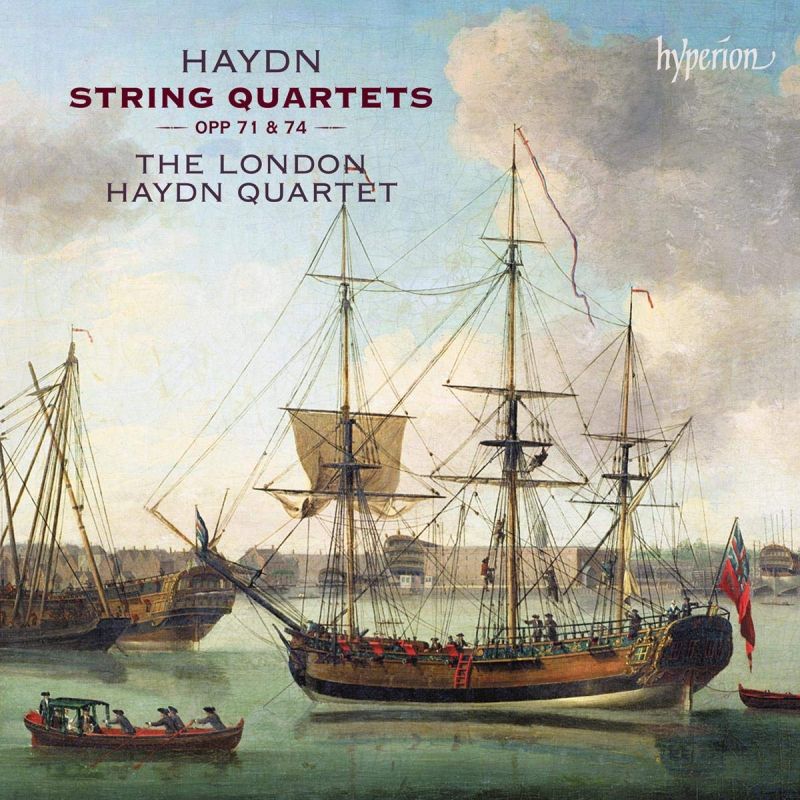HAYDN String Quartets Opp 71 & 74 (London Haydn Quartet)
View record and artist detailsRecord and Artist Details
Composer or Director: Joseph Haydn
Genre:
Chamber
Label: Hyperion
Magazine Review Date: AW2019
Media Format: CD or Download
Media Runtime: 156
Mastering:
DDD
Catalogue Number: CDA68230

Tracks:
| Composition | Artist Credit |
|---|---|
| (3) String Quartets, 'Apponyi I' |
Joseph Haydn, Composer
Joseph Haydn, Composer London Haydn Quartet |
| (3) String Quartets, 'Apponyi II' |
Joseph Haydn, Composer
Joseph Haydn, Composer London Haydn Quartet |
Author: Richard Bratby
The group’s period-instrument sonority and basic approach will be familiar from earlier releases in this series: sparing use of vibrato (but liberal use of rubato), observance of all repeats in the outer movements, broad tempos and a clear, layered but buoyant ensemble sound. Anchored by Jonathan Manson’s sonorous cello tone, chords ring and accompaniment passagework is vibrant and crisp. But with Catherine Manson’s nuanced but unflashy first violin up top, the many passages of virtuoso display remain anchored in the ensemble texture. There’s never any chance of the musical argument degenerating into the tinselly quatuor brillante style beloved of Haydn’s London rivals.
That creates the potential to go deep, and to explore: the sweeping opening movement of Op 74 No 1 opens a huge expanse of possibilities, and while the LHQ’s soft-edged approach to the opening of Op 71 No 2’s first Allegro robs it of some of its interlocking, ricocheting brilliance, it allows the same motif to return as a powerfully articulated turning point later in the argument. Slow movements have a natural lilt (the Andantino of Op 74 No 1 feels almost like a Mozart serenade), and there’s wit in play too: the elegant strut of Op 71 No 3’s Andante con moto is almost dandyish. Well, after all, Hanover Square isn’t so far from Savile Row. The finale of Op 74 No 2 positively flashes along.
But overall, these are thoughtful rather than playful performances. You might have noticed that I haven’t mentioned any of the minuets; in these movements, more than anywhere, I longed for a bit more of a sense of playing to an audience, of creative exaggeration, of theatricality. Still, there’s more than one way to play Haydn, and the febrile mood swings, dark-hued grandeur and searching intensity of Op 74 No 3, in particular, make it one of the most complex Riders on record. And then, at the last, the LHQ glide into the final G major key-change with such throwaway nonchalance that I simply had to smile. Always a good sign.
Discover the world's largest classical music catalogue with Presto Music.

Gramophone Digital Club
- Digital Edition
- Digital Archive
- Reviews Database
- Full website access
From £8.75 / month
Subscribe
Gramophone Full Club
- Print Edition
- Digital Edition
- Digital Archive
- Reviews Database
- Full website access
From £11.00 / month
Subscribe
If you are a library, university or other organisation that would be interested in an institutional subscription to Gramophone please click here for further information.




